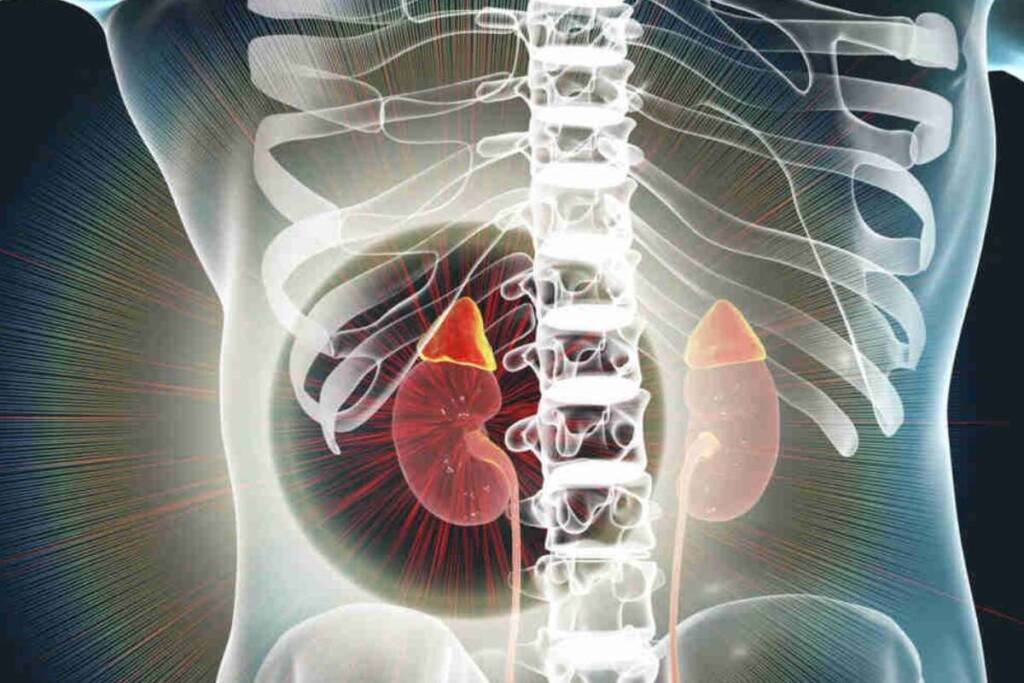Combining pembrolizumab (Keytruda) with lenvatinib (Lenvima) has showcased enduring effectiveness against tumors in patients with non-clear cell renal cell carcinoma (nccRCC) and maintained a safety profile consistent with previous studies, as indicated by the findings from the KEYNOTE-B61 trial (NCT04704219).
Published in The Lancet Oncology, these results emanated from a cohort of 158 patients recruited from 48 diverse locations across 14 countries, including the United States. Led by Laurence Albiges, MD, PhD, a medical oncologist at Institut Gustave Roussy, the study’s authors underscore that these outcomes encourage further exploration of this pembrolizumab/lenvatinib combination for nccRCC.
The study unveiled a confirmed objective response rate of 49% (95% CI, 41%-57%) with pembrolizumab/lenvatinib. This encompassed confirmed complete responses in 44% of patients, confirmed partial responses in 43%, stable disease in 33%, and progressive disease in 11%. The clinical benefit rate reached 72% (95% CI, 64-78), with 58% of patients displaying a 30% reduction in tumor size.
Evaluation of responses across distinct histology groups unveiled similar response rates among patients with centrally determined histology. Notably strong responses were observed in the papillary and chromophobe histology subgroups.
Median progression-free survival (PFS) clocked in at 18 months (95% CI, 14 months to not reached) with pembrolizumab and lenvatinib, accompanied by a 12-month PFS rate estimated at 63% (95% CI, 54%-70%). Median overall survival remained unreached, although up to the data cutoff, 22% of patients had succumbed.
Treatment persisted for a median duration of 9.7 months (interquartile range, 4.2-14.0 months). Safety analysis indicated that treatment-related adverse events (TRAEs) of any grade affected 94.5% of patients. Dominant TRAEs associated with pembrolizumab/lenvatinib encompassed hypertension (57%), diarrhea (44%), and hypothyroidism (37%). Most prevalent grade 3 or 4 TRAEs encompassed hypertension (23%), proteinuria (4%), and stomatitis (4%).
Serious TRAEs occurred in 20% of patients, commonly involving acute kidney injury, increased aspartate aminotransferase, asthenia, diarrhea, and hyponatremia. Eight deaths within the study were attributed to adverse events (AEs), yet none were tied to treatment. Fatal AEs encompassed cardiac failure, peritonitis, pneumonia, sepsis, cerebrovascular accident, suicide, pneumothorax, and pulmonary embolism, each occurring in one patient.
AE-induced dose reductions were necessary for 34% of patients, and AEs leading to treatment interruption or discontinuation affected 72% and 20% of patients, respectively.
Prominent AEs of clinical significance included hypertension (61%), hypothyroidism (42%), proteinuria (31%), and palmar-plantar erythrodysesthesia syndrome (30%). Immune-related AEs were observed in 53% of patients, with hypothyroidism (42%), hyperthyroidism (12%), adrenal insufficiency (4%), and pneumonitis (3%) being the most prevalent.
“To our knowledge, KEYNOTE-B61 is the largest prospective clinical trial to date to investigate a combination therapy based on an immune checkpoint inhibitor for the first-line treatment of non-clear-cell renal cell carcinoma. Anti-tumor activity was also consistently observed across subgroups, including by histological subtype, International Metastatic Renal Cell Carcinoma Database Consortium risk category, and the presence or absence of sarcomatoid features,” wrote Albiges et al. “The safety profile of pembrolizumab plus lenvatinib was similar to that observed previously, with no new safety signals reported,” the authors added.





























